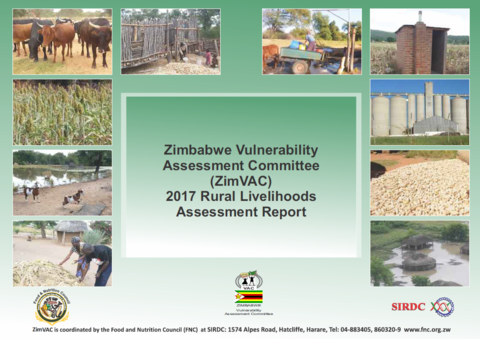
BY Paidamoyo Muzulu ANY rural citizens of Zimbabwe depend on State aid to get through life. The situation remains grim for the rural voters as 2023 general elections are looming with the country’s food security threatened by the 2021/22 season’s poor harvest.
In many countries — both developed or developing, people vote for the incumbents during a crisis for fear of changing captains.
The adage has always been — better the devil you know than the one you don’t.
Zimbabwe is going through economic and political turbulence. The local currency is fast losing value against the greenback and year-on-year inflation is galloping.
Unemployment in the formal sector remains high, above 80% and average monthly salaries are way below monthly bread basket needs for a family of six, that is now at over $120 000.
On the political front, violence is on the rise with skirmishes being reported across the country even at sacred events like funerals.
While party leaders publicly denounce violence, their followers on social media and in communities are not exercising any restraint.
The Cabinet this week decided to give a sneak peek into the Zimbabwe Vulnerability Assessment Committee 2022, Rural Livelihoods Assessment Report.
- Chamisa under fire over US$120K donation
- Mavhunga puts DeMbare into Chibuku quarterfinals
- Pension funds bet on Cabora Bassa oilfields
- Councils defy govt fire tender directive
Keep Reading
The report, upon closer scrutiny, shows that many Zimbabweans are wallowing in poverty and depend on State handouts, no matter how meagre, to survive.
On food security, the Cabinet said: “The household food security situation improved, with the proportion of households having borderline diets having decreased, while households having poor food consumption increased to 36%. The proportion of households in the acceptable category also increased from 29% in 2021 to 35% in 2022.”
Reading between the lines, 65% of the households are living in unacceptable category.
This means six and half families out of every 10 do not have sufficient food.
A generous interpretation may fault the drought suffered in the current season for the food shortages, but however, there are more structural issues to this: poverty.
The report further highlighted as an established fact that slightly under two in three families depended on government assistance.
The Cabinet statement noted: “Highlights of the other rural assessment findings are as follows: under social protection, 61% of rural households received some form of support, with government accounting for 67% of the support rendered.”
The government, in simple terms, is a saviour. It keeps soul and limbs together for the majority of the citizens in the rural areas. It has extended the support to indirect aid like food for work programmes for the able-bodied indigents.
There is always stiff competition to get enlisted on the public works programmes for many and a party card may be an advantage to hop the line and assurances that you can always get opportunities for aid first.
Finally, the report noted that nearly one in five school-going age children were not in school. This is a huge figure by any measurement, a generation that will in all likelihood remain hewers of hood and drawers of water. A generation that may never dream of social climbing up the ladder.
The Cabinet statement further said: “In education, 83,8% of school-going children were in school compared to the 77% recorded in 2021. Government assisted 560 000 learners through the Basic Education Assistance Module (Beam), and reiterates its standing policy that no learner should be turned away for non-payment of school fees.”
It is beyond doubt that these are grim statistics that no one should be proud about in a country with 42 years of independence.
The majority of the people are living in poverty and their only hope for survival is government.
Yes, their hope is government. Unfortunately, in Zimbabwe, there is a conflation of government and ruling party.
It is in this fluidity that many in the rural areas never and would not want to know the difference between the two, because their socialisation taught them that not supporting one of the two means a real hard life.
It is in the uneven environment that the opposition will next year pit against Zanu PF. An environment of grinding poverty and the saviour government.
An environment of food insecurity and a chance to be overlooked in public works programmes. It is in the same environment that they are expected to vote.
It may not be far-fetched to assume Zanu PF is not ready to fight poverty, give families social support grants in cash and allow many children to go to school in order to remain in power.
The opposition chances lie in having them explaining to the citizens that government and ruling parties are not one and the same thing.
Secondly, they have to reassure the citizens that they have a better plan on social safety nets that are not tied to political party support and finally, that their children can have a chance to get an education.
This is not an easy task, but it can be achieved if the opposition gets better organised, disciplined messaging and having clear programmes of action if it assumes power.
In the meanwhile, it is sad and scary that the elections are most likely to be held just before the 2023 harvesting season, a time when food aid is mostly needed.
Potential vote-buying using food aid is a possibility that is worsened by lack of distinction of government and ruling party.
The work is cut out and the opposition should seize the narrative early and communicate its message, convince the majority poor that they can be better off under their management with a real social democratic government or else Zanu PF will use the prevailing political/economic circumstances to its advantage for another term.









